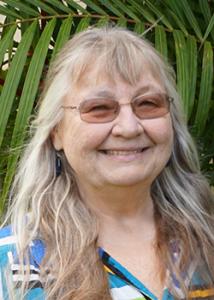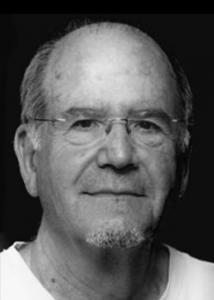2 UH Mānoa political science professors rank among the top 25 in U.S.
University of Hawaiʻi at MānoaA ranking by The Political Science 400 lists two University of Hawaiʻi at Mānoa professors, Kathy E. Ferguson and Michael J. Shapiro, among the top 25 most-cited political theorists in the United States.
“One of the strengths of the Political Science Department is our focus on political theory. Thus, it is a huge honor that not one but two of our faculty members have been recognized as being among the most cited and influential political theorists working in the field today,” said Noelani Goodyear–Ka‘ōpua, associate professor and chair of the Political Science Department in the College of Social Sciences at UH Mānoa. “Our department is proud to have Professors Kathy Ferguson and Michael J. Shapiro on staff. Both are intellectual powerhouses in their field, who are not only excellent researchers, but also wonderful professors who inspire their students to greatness,” she added.
“We congratulate Kathy and Michael on receiving this honor. It is a reflection of the exceptional caliber of our faculty that the only other universities that have more than one political theorist named in The Political Science 400’s top 25 are Stanford, Columbia and New York University,” said Denise Eby Konan, dean of the College of Social Sciences.
The Political Science 400 identifies the 400 most highly cited scholars in the profession who are currently teaching at PhD-granting political science departments in the United States. It lists the top 25 most-cited in each of six subfields: American Politics, Comparative Politics, International Relations, Methodology, Political Theory and Public Policy/Public Administration/Public Law/Political Psychology.
The Political Science 400 is an exhaustive rankings study published in the journal, PS: Political Science & Politics, which provides critical analyses of contemporary political phenomena and is the journal of record for the discipline of political science reporting on research, teaching and professional development. Since 1968, PS is the only quarterly professional news and commentary journal in the field and is the prime source of information on political scientists' achievements and professional concerns.
Kathy E. Ferguson is a professor of political science and women's studies in the College of Social Sciences at the University of Hawai’i at Mānoa, who specializes in political theory and feminist theory.
Ferguson received her PhD in political science at the University of Minnesota in 1976 and was the first person from that department to complete a dissertation on women or feminism. From 1976-1985 she taught at Siena College in Loudonville, NY. In addition to teaching political theory, comparative politics and American politics, she was co-founder and first director of Sienaʻs Women and Minority Studies Program. She published her first two books while teaching at Siena: Self, Society and Womankind (Greenwood, 1980) and The Feminist Cast Against Bureaucracy (Temple 1984).
She came to UH Mānoa in 1985. With co-author Phyllis Turnbull she wrote a book about militarism in Hawai'i entitled Oh, Say, Can You See? The Semiotics of the Military in Hawai'i (University of Minnesota Press, 1999). Turnbull and Ferguson also taught courses together on the military in Hawai'i. With co-editor Monique Mironesco, Ferguson edited a volume of essays entitled Gender and Globalization in Asia and the Pacific (University of Hawai'i Press, 2008). Other books include Kibbutz Journal (Trinity, 1996), Emma Goldman: Political Thinking in the Street (Rowman and Littlefield, 2011), and Resource Guide on Dyslexia for People in Hawai'i (2018). She is teaching at the University of Roehampton in London in fall 2019, and has also taught at Ben Gurion University in Israel, the University of Gotenberg in Sweden, and the Institute for Advanced Study in Vienna. She is currently writing two books: one on women in the classical anarchist movement and the other on the role of letter press printers in anarchism.
Michael J. Shapiro has been a professor of political science at the University of Hawai’i at Mānoa since 1966. The author of numerous books, those published in this millennium include: For Moral Ambiguity: National Culture and the Politics of the Family (University of Minnesota Press, 2001), Methods and Nations: Cultural Governance and the Indigenous Subject (Routledge 2004), Deforming American Political Thought: Ethnicity, Facticity, and Genre (University Press of Kentucky 2006), Cinematic Geopolitics (Routledge 2009), The Time of the City: Politics, Philosophy and Genre (Routledge 2010), The New Violent Cartography, co-edited with Sam Opondo (Routledge 2012), Studies in Trans-Disciplinary Method: After the Aesthetic Turn (Routledge 2012), War Crimes, Atrocity, and Justice and Politics and Time: Documenting the Event (Polity, 2015 and 2016), Deforming American Political Thought: Challenging the Jeffersonian Legacy 2nd edition (Routledge, 2016), and The Political Sublime (Duke University Press, 2018). In a recent interview in the LA Review of Books, his interlocutor described him as one who has continuously pushed the boundaries of trans-disciplinary engagements.
MORE ABOUT THE DEPARTMENT OF POLITICAL SCIENCE
The Department of Political Science (POLS) in the UH Mānoa College of Social Sciences stands out in the fields of international relations, political theory, comparative politics, Asian politics, futures studies, indigenous politics, and public policy. Across these fields, there is a shared preoccupation with the critique of dominant historical forces and centers of power. Student-centered classes are focused on broad yet comprehensive discussions that catalyze critical thinking and promote effective communication in a range of contexts.
MORE ABOUT THE COLLEGE OF SOCIAL SCIENCES
Marked by leadership, excellence and innovation, the College of Social Sciences (CSS) at the University of Hawai‘i at Mānoa provides students with a culturally diverse experience that transforms them into bold, engaged global citizens who affect change, break down barriers, touch lives and succeed in a multi-cultural context. Its student-centered environment id dedicated to providing students with a vibrant academic climate that affords exciting, intense interaction among students and faculty as they address fundamental questions about human behavior. Featuring outstanding scholarship through internships, active and service learning approaches to teaching, and an international focus particularly in the Asia Pacific region, it prepares students to become leaders in public and private enterprises throughout Hawai‘i and Asia.


